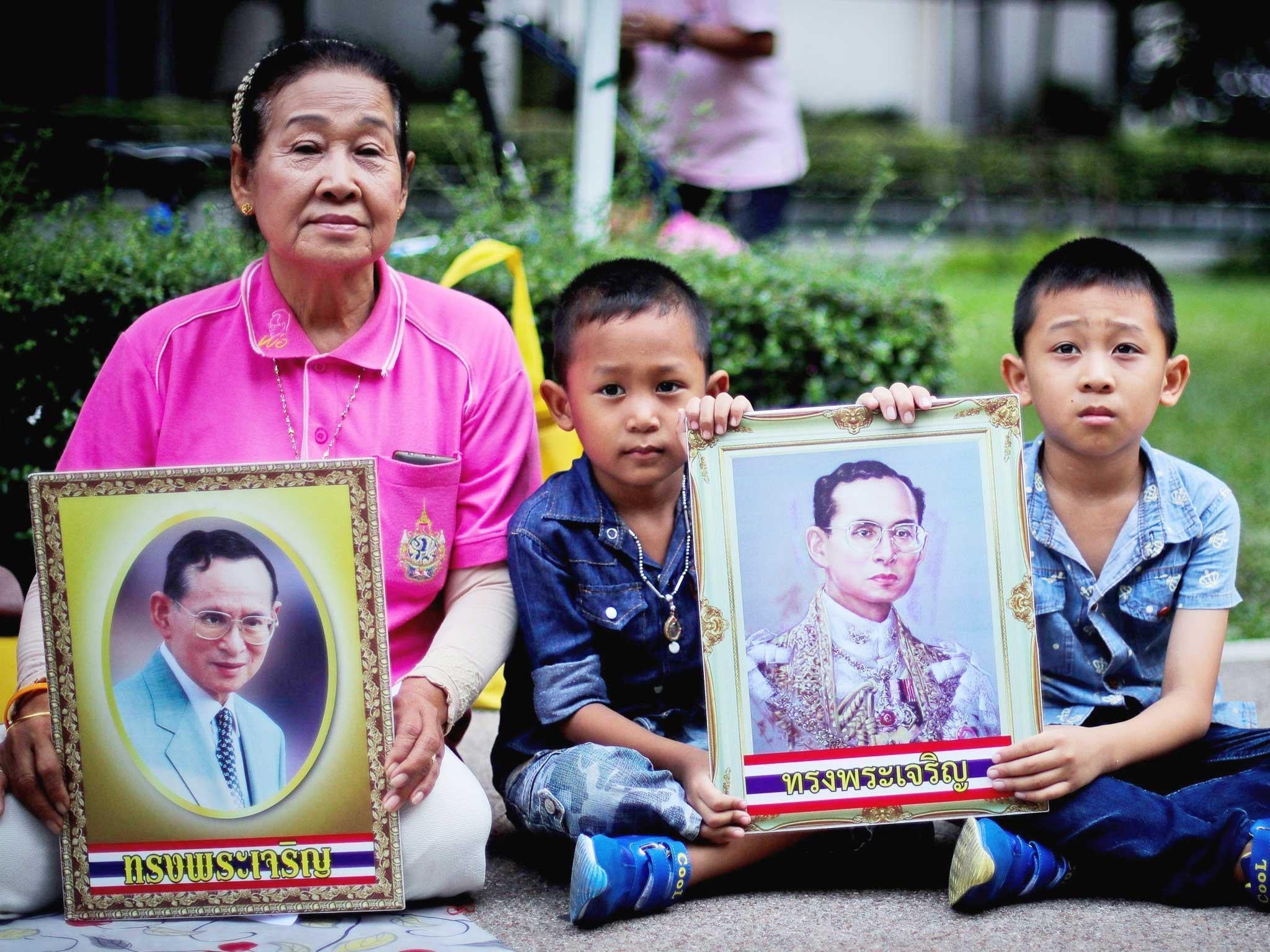Longest-reigning monarch dies: How travellers to Thailand will be affected
The Foreign Office rushed out new travel advice within an hour of King Bhumibol's passing

British holidaymakers and expatriates in Thailand have been warned to show respect for “the feelings and sensitivities of the Thai people” after the death of King Bhumibol Adulyadej.
The Foreign Office rushed out new travel advice within an hour of the official announcement of the monarch’s passing.
The bulletin urges British nationals to “wear sombre and respectful clothing when in public,” and says that “access to entertainment, including restaurants, bars, and shopping areas may be restricted” while the Thai people come to terms with the loss of the king who reigned for 70 years.
For the vast majority of Thais, King Bhumibol Adulyadej is the only monarch they have ever known. An official period of mourning of one year starts at midnight. The Australian government warned its citizens: “There may be some disruption of normal commercial and public services in the country during the mourning period.”
Crown Prince Maha Vajiralongkorn is the successor to the throne.
The royal family is revered in Thailand. It is a criminal offence, punishable by a long prison sentence to make critical comments about them, or to commit an act of "Lèse Majesté" such as defacing a banknote with the king's image.
King Bhumibol has been seen as a calming influence during decades of political turmoil. Following a coup in 2014, the country has been ruled by a military junta, the National Council for Peace and Order (NCPO).

The US State Department warned American citizens: “The NCPO has banned political gatherings and placed restrictions on the media, freedom of speech, and freedom of assembly. Security forces have additional powers, including the right to control movement and search for weapons.”
Even before the king’s death, the Foreign Office warned British travellers of “a high threat from terrorism” in Thailand. “Since 2004, there have been almost daily attacks in the far south of the country, including arson, bombings and shootings,” said the official travel advice.
More than 6,000 people have been killed in the insurgency in southern Thailand, which has spread at times to other parts of the country.
A UK national was killed in a bomb attack near the Erawan Shrine in the capital in August 2015.
One million British holidaymakers visit Thailand each year, and tens of thousands more UK citizens reside in the country — mostly in coastal resorts
Click here to view Asian tours and holidays, with Independent Holidays.
Join our commenting forum
Join thought-provoking conversations, follow other Independent readers and see their replies
Comments
Bookmark popover
Removed from bookmarks